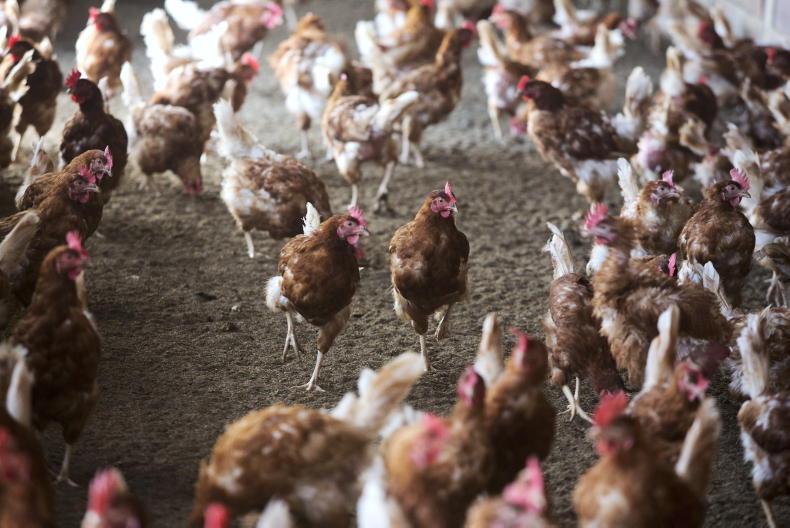Local poultry units that have been infected with the respiratory disease Infectious Laryngotracheitis (ILT) are not required to cull birds or have movement restrictions in place.
A department spokesperson said that 17 cases of the viral infection have been reported in NI poultry flocks since 4 May 2021.
“While it is a notifiable disease in NI, DAERA considers it a production disease and therefore no restrictions or actions at flock level are being carried out,” the spokesperson confirmed.
ILT causes laboured breathing, gasping and coughing in infected birds. It has a typical mortality rate of 10% to 20%, although it can be as high as 70% in some cases.
Losses
The main issues associated with an ILT outbreak include increased mortality rates and production losses among those birds that recover from the disease.
Unlike avian influenza, ILT is not carried by wild birds, and this should help limit its ability to spread across NI.
It is understood that most cases in NI to date have been mainly in the south Tyrone area, although a range of different poultry systems have been affected.
“Litter has been identified as a key risk factor in infection spread. We are urging industry to keep litter trailers covered and store litter for as long as practically possible before spreading it,” the DAERA spokesperson said.
The advice from both DAERA and the Ulster Farmers’ Union is for strict biosecurity measures to be maintained on poultry units, similar to the steps that were in place over the winter to avoid avian influenza.
A vaccine for ILT is available, although its importation and use is controlled by DAERA. It was used by local poultry producers after the last outbreak of ILT occurred in NI back in 2013.






 This is a subscriber-only article
This is a subscriber-only article











SHARING OPTIONS: